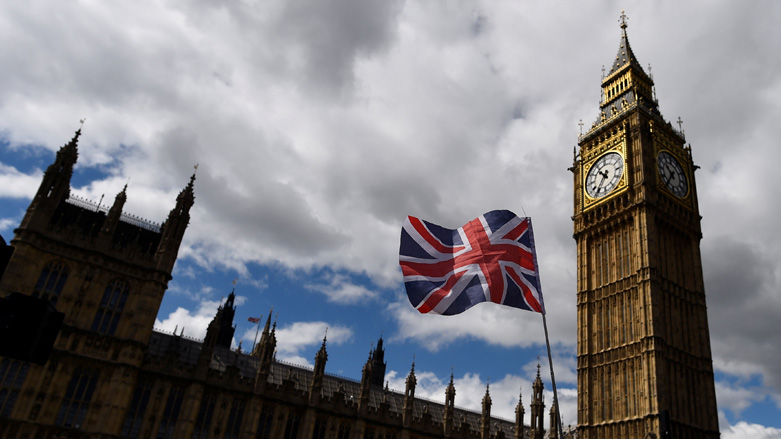UK warns against travel to Iraq, Kurdistan due to coronavirus and security threats

ERBIL (Kurdistan 24) – The UK’s Foreign and Commonwealth Office (FCO) warned its citizens in a newly updated travel bulletin on Tuesday against all travel to Iraq, including the Kurdistan Region, due to the ongoing outbreak of the coronavirus and increasing security threats due to recent US-Iran tensions in Iraq.
“There is an ongoing outbreak of coronavirus (COVID-19) in China, but cases have been confirmed in other countries, including Iraq. A government curfew is in place in Baghdad from 17 March (23:00) to 23 March (23:00) to slow the spread of coronavirus. Kurdistan Region of Iraq’s regional government have also declared a lockdown across all governorates,” the UK’s FCO said.
The Iraqi Civil Aviation Authority has suspended all flights in the country, including the Kurdistan region, from March 17 to 24, with the exception of aircraft crossing Iraqi airspace.
Moreover, the Kurdistan Regional Government (KRG) also decided on March 16 to quarantine those arriving from any of 30 countries in hotels converted to quarantine centers, including UK citizens.
Related Article: KRG imposes curfews, orders quarantine of those returning from abroad as infections continue
The UK Foreign Office warned that when flights to Iraq and the Kurdistan Region resume, British nationals arriving at airports in the Kurdistan Region of Iraq will be subject to this period of quarantine. It also called on “British nationals who have arrived from Lebanon in the past 30 days should immediately present themselves to the Ministry of Health in Kurdistan Region of Iraq.”
So far, there have been 1,950 confirmed cases and 60 deaths in the UK, according to a report of The Guardian citing UK government statistics.
There have been 39 confirmed cases in the Kurdistan Region, according to the Kurdistan Region’s Ministry of Health, and 164 in all of Iraq, 11 of them fatal.
Read More: Coronavirus in Kurdistan: Chinese health experts to visit, 39th case confirmed
According to figures released by the World Health Organization (WHO), which declared the novel coronavirus a global pandemic last week, over 219,000 cases have been confirmed worldwide and nearly 9,000 deaths.
In the Middle East, Iranians were among the first to catch the virus and it has now infected over 17,000 people nationwide and killed about 1,200, as per official figures. The numbers could be substantially higher, however, amid testing difficulties and allegations of underreporting.
As infections were beginning to spread from Iran to neighboring states, the Kurdistan Regional Government (KRG) took swift measures to prevent an outbreak. There are now 39 cases in the autonomous region, with the latest one being that of a five-year-old child from Sulaimani province.
Sulaimani has the highest number of infections in the Kurdistan Region, while Duhok Province has seen no cases. Sulaimani authorities also announced on Wednesday that four more people had recovered from the coronavirus, which brings the total in the region to 13.
The UK has also withdrawn non-essential staff from its diplomatic missions in Iraq and the Kurdistan Region since March 17, but core staff remain to do operational work. UK Visa Application Centers in Baghdad, Erbil, and Basra are also closed until further notice as part of anti-coronavirus measures.
The Foreign Office additionally warned of possible threats against Western interests including against UK citizens as a result of US-Iran tensions.
Hostilities between the US and Iran-backed groups in Iraq have increased in recent months, notably after a rocket attack by the Kata’ib Hizbollah militia on K-1, an Iraqi base outside Kirkuk in late December that killed an American translator.
That set into motion an exchange of retaliatory actions between the two countries, culminating in the Jan. 3 US assassination of the celebrated Iranian general, Qasim Soleimani, followed five days later by an Iranian missile strike on the Ayn al-Asad airbase that resulted in over 100 American servicemen suffering traumatic brain injuries.
Most recently, on March 11, two Americans and one UK soldier were killed during a rocket attack also blamed on Kata’ib Hizbollah.
Tuesday’s travel advisory warned UK citizens that they should not assume that the Foreign Office would provide assistance if there is a sudden deterioration in the security situation in the country.
The British Consulate in Erbil opened its doors in 2011, in part to provide services for many of its citizens currently working in the Kurdistan Region for various companies in the private sector.
Editing by John J. Catherine
